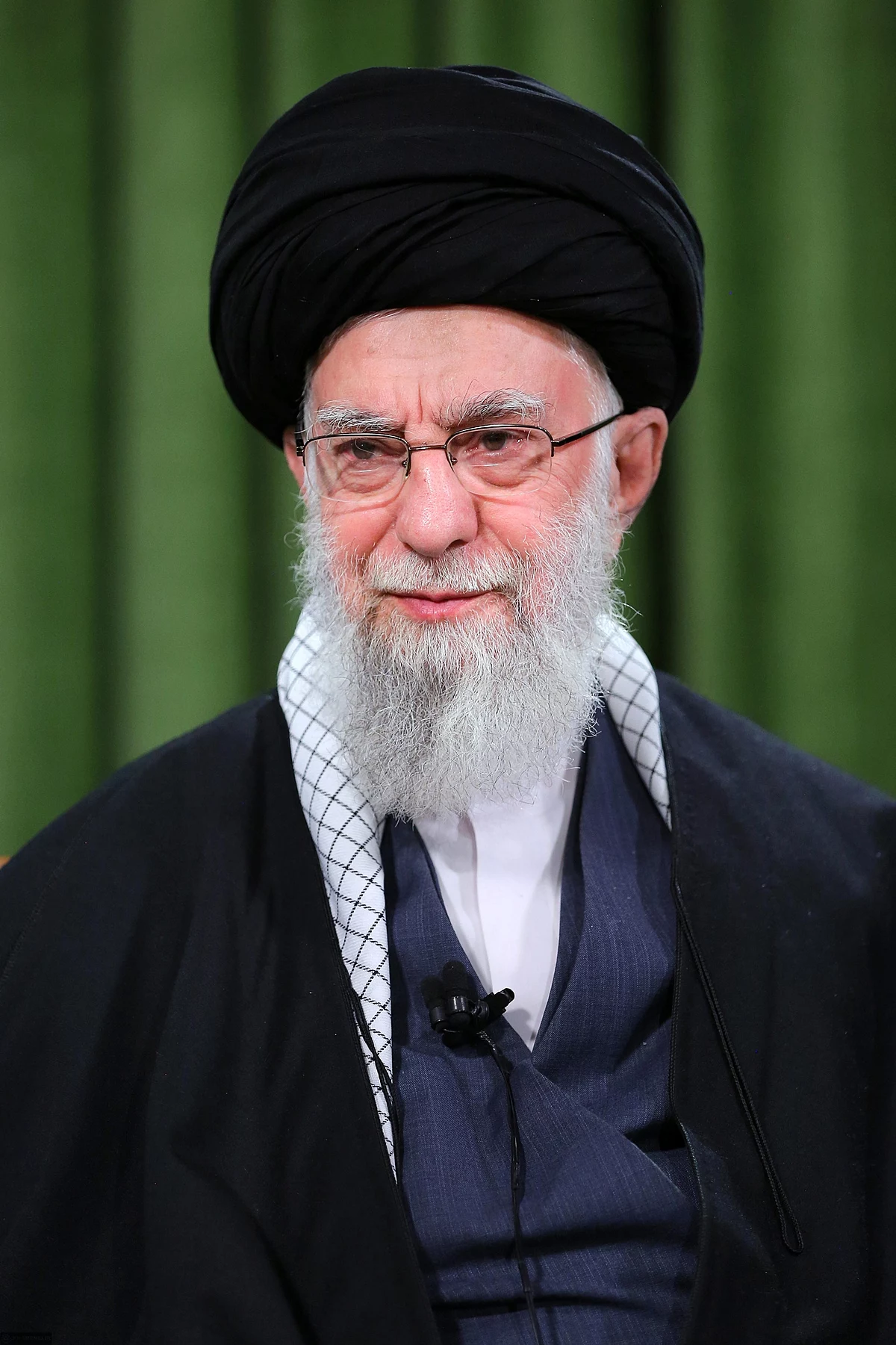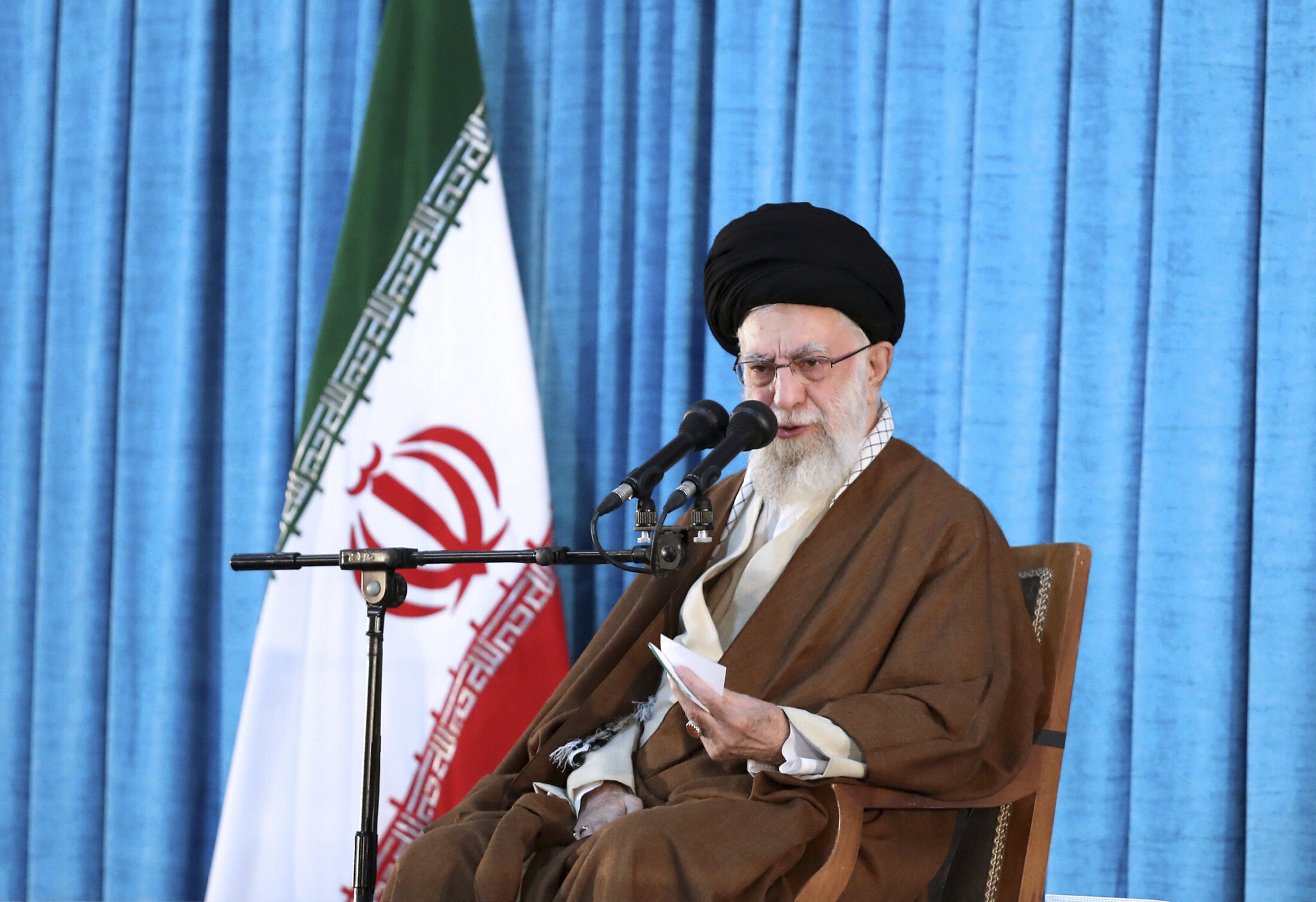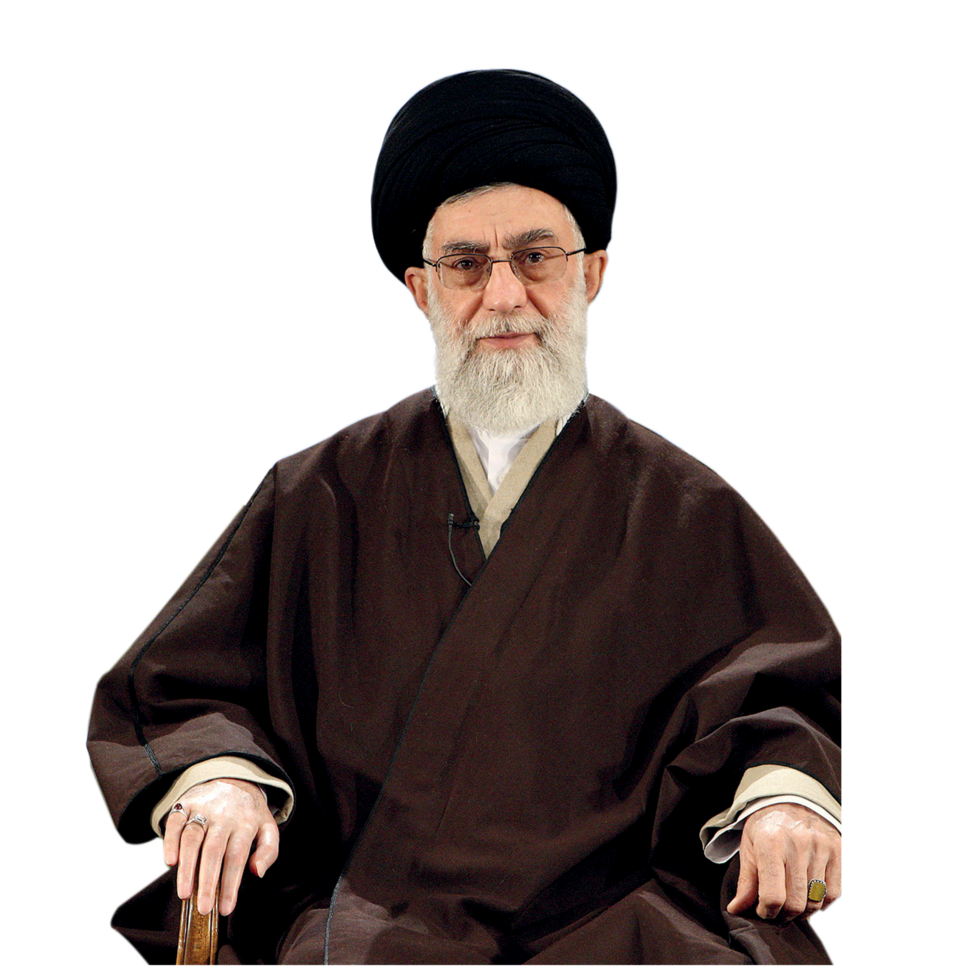Is Ayatollah Khomeini Sunni Or Shia? Unraveling A Key Religious Identity
When we think about prominent religious figures, it's really common to wonder about their specific background and beliefs. So, too it's almost, many people often ask, "Is Ayatollah Khomeini Sunni or Shia?" This question is quite important for anyone wanting to get a better sense of modern Middle Eastern history and religious movements, especially in a place like Iran. Knowing the answer helps us understand so much about the region's past and how things are shaped even today.
Ayatollah Ruhollah Khomeini was, in fact, a very powerful leader and a widely recognized religious authority. His influence stretched across the Shia world, and that's especially true for Iran. Understanding his specific religious identity, then, is key to grasping the events he shaped and the system he helped create.
This article will take a closer look at the religious background of Ayatollah Ruhollah Khomeini, drawing directly from information we have. We'll explore what it means to be an Ayatollah and how this title connects to a particular branch of Islam. You know, it's really quite interesting to see how these religious distinctions play out in history.
- What Job Does Vivian Have In King Of Wrath
- Is Harvey Spectre A Lawyer
- Who Is The Lawyer For The Riot Games
- How Many Lawyers Does Mcdermott Will Emery Have
- How Old Was Danny Devito In Twins
Table of Contents
- Ayatollah Ruhollah Khomeini: A Brief Look
- What Exactly is an Ayatollah?
- Khomeini's Shia Identity: A Deeper Dive
- Iran and the Heart of Shia Islam
- Efforts Towards Unity Among Muslims
- His Legacy and the Path of Succession
- Frequently Asked Questions
Ayatollah Ruhollah Khomeini: A Brief Look
Ayatollah Ruhollah Khomeini was, very simply, a central figure in 20th-century history, particularly in Iran. He was not just a religious scholar; he was a political force, a leader who brought about really big changes. His actions and his beliefs shaped a nation, and that's quite a significant thing, actually.
Personal Details and Biographical Data
| Name | Ruhollah Khomeini |
| Religious Affiliation | Twelver Shi'i Islam |
| Key Roles | Senior Islamic Jurist Cleric, Religious Authority, Political Authority, Leader of the 1979 Iranian Revolution, Founder of the Islamic Republic of Iran |
| Associated Country | Iran |
What Exactly is an Ayatollah?
The title "Ayatollah" is something you hear a lot when talking about certain religious figures, especially from Iran. It's not just a common name; it's a specific title that holds a lot of meaning. An Ayatollah, you see, is a title given to high-ranking clergy within Twelver Shia Islam. This title, in a way, really signifies a great deal of religious knowledge and authority.
This particular title, "Ayatollah," became much more widely used in the 20th century. It was, in some respects, a title that came about through popular or clerical acclaim. It was given to a rather small number of the most respected scholars, indicating their deep understanding of Islamic law and teachings. So, it's not just a self-proclaimed thing; it's something that is bestowed, you know.
- How Much Does It Cost To Hire Danny Devito
- Does Yung Gravy Have Radial Palsy
- Who Did Jules Sleep With In Episode 1
- Did Dave And Lauren Sleep Together
- Who Is Jules Ex Husband
Khomeini's Shia Identity: A Deeper Dive
To directly answer the question, Ayatollah Ruhollah Khomeini was, without a doubt, a Shia Muslim. More specifically, he was a senior Islamic jurist cleric of Twelver Shi'i Islam. This particular branch of Shia Islam is very significant, as it makes up about 80% of the entire Shi'i population around the world. So, his affiliation was with the largest group within Shia Islam, which is quite notable.
His position as an Ayatollah immediately tells us about his Shia background, because, as we mentioned, the title itself is specifically for high-ranking Twelver Shia clergy. He was, therefore, not a Sunni Muslim. His entire religious and political career was deeply rooted in Shia theology and traditions. This distinction is, arguably, very fundamental to understanding his life's work.
His standing as a religious and political authority was very strong within the Shia world. This was especially true in Iran, where his influence became absolutely immense. His caliber as a scholar and a leader simply cannot be overstated, as a matter of fact. He really was a central figure for many Shia Muslims.
Iran and the Heart of Shia Islam
The connection between Ayatollah Khomeini and Iran is, quite frankly, inseparable. Iran itself has a predominantly Shia population. Roughly 90% of its citizens identify as Shia Muslims. This demographic reality makes Iran a very important center for Shia Islam globally. It's almost, you know, a natural fit for a high-ranking Shia cleric like Khomeini to emerge as a national leader there.
Ayatollah Khomeini was, you know, the powerful leader of the 1979 Iranian Revolution. This momentous event led to the establishment of the Islamic Republic of Iran. This new form of government was, basically, founded upon principles rooted in Shia Islamic thought. His leadership, therefore, cemented Iran's identity as a Shia Islamic state. This is, truly, a significant historical development.
The system of rule by Shiite Muslim clerics, which was established by the revolution, was later entrenched by his successor, Ayatollah Ali Khamenei. This shows a clear continuation of Shia religious leadership within Iran's political structure. It's pretty much a direct line from Khomeini's vision, you see.
Efforts Towards Unity Among Muslims
Even though Ayatollah Khomeini was a prominent Shia leader, he was also known for his efforts to build bridges between Shia and Sunni Muslims. This might seem a little surprising to some, but it was a consistent theme in his public statements. He, very clearly, understood that the division between Shia and Sunni Muslims was a source of weakness. He believed this weakness could be, and often was, exploited by outside forces. He, therefore, advocated for unity.
For example, Ayatollah Mousawi Jazayeri, who was a Friday prayers imam and the representative of the Supreme Leader in Khuzestan, once recalled Khomeini's advice. He said that "the Imam always advised Shiite and Sunni Muslims get united and stand firmly against western and arrogant powers." This shows, in a way, his strong belief in a united Muslim community. It's a very practical approach to global politics, actually.
Furthermore, Khomeini took a very firm stance against actions that could deepen divisions. He prohibited insulting figures and symbols that are celebrated by Sunni brethren. This included, for instance, the wife of the Prophet of Islam, Aisha. This prohibition was a really clear message aimed at fostering respect and preventing sectarian strife. It was, in fact, a practical step towards achieving that unity he spoke about, you know.
His Legacy and the Path of Succession
Ayatollah Khomeini's impact on Iran and the wider Muslim world was, quite honestly, enormous. He was revered as both a religious scholar and a political leader. His leadership during the revolution and his subsequent rule as the founder of the Islamic Republic left an indelible mark. He, basically, shaped the course of a nation for decades to come.
Upon his passing, Ayatollah Ali Khamenei succeeded him in 1989. Khamenei, too, is a high-quality scholar in his own right, but he gets much of his credibility from the fact that he was the appointed successor of Khomeini. This succession was a crucial moment, ensuring the continuation of the system of rule by Shiite Muslim clerics that Khomeini had established. It's almost like a passing of the torch, in a way.
Khamenei has, since then, continued to lead Iran, crushing internal threats during more than three decades in power. This continuity highlights the enduring nature of the system that Ayatollah Khomeini initiated, a system deeply rooted in Twelver Shi'i Islam. His vision, you know, really continues to influence Iran's direction.
Frequently Asked Questions
1. What is the significance of the title Ayatollah?
The title "Ayatollah" is, basically, a very important designation within Twelver Shia Islam. It means "Sign of God" and is given to very high-ranking clergy. It came into widespread usage in the 20th century, typically through popular or clerical acclaim for a small number of the most knowledgeable and respected scholars. It signifies deep expertise in Islamic jurisprudence and a significant level of religious authority, you know.
2. What is Twelver Shi'i Islam?
Twelver Shi'i Islam is, in fact, the largest branch of Shia Islam. It makes up about 80% of the entire Shi'i population. Its followers believe in twelve divinely ordained leaders, known as Imams, who are the spiritual and political successors to the Prophet Muhammad. The last of these Imams is believed to be in occultation and will return. This branch is, obviously, the predominant form of Islam in Iran.
3. Did Ayatollah Khomeini promote unity between Sunni and Shia Muslims?
Yes, Ayatollah Khomeini did, in fact, promote unity between Sunni and Shia Muslims. He strongly believed that the divisions between the two sects weakened the Muslim world and made it vulnerable to external forces. He consistently advised both Shia and Sunni Muslims to unite and stand together against what he called "western and arrogant powers." He even prohibited insulting figures revered by Sunni Muslims, like the Prophet's wife, Aisha, to foster respect and reduce friction, which is pretty significant.
So, to be clear, Ayatollah Ruhollah Khomeini was a prominent figure within Twelver Shi'i Islam, a fact that shaped his religious authority and his role in the Iranian Revolution. His identity as a Shia cleric is central to understanding his impact and the nature of the Islamic Republic of Iran. Learning about these distinctions, you know, helps paint a clearer picture of the world.
If you're interested in learning more about the history of Iran's leadership, you can really explore the complexities of the 1979 Iranian Revolution and its aftermath. You might find it interesting to learn more about the historical figures who shaped modern Iran on our site, and also perhaps delve into the different political systems in the Middle East for a broader view. These topics, as a matter of fact, are deeply interconnected.
For further reading on the nuances of Shia Islam and its global presence, you could look up scholarly articles or books from reputable sources on Islamic studies, like a university press or a well-known academic journal. This could, you know, provide even more context.
- Who Did Shannon Bream Replace On Fox
- Did Dave And Lauren Sleep Together
- Who Is Sean Hannitys New Partner
- What Rapper Has A Harvard Degree
- Is Joe Devito Related To Danny Devito

Ayatollah Ali Khamenei Supreme Le 2024 Tickets - Codie Devonne

Khamenei: 'No one can stop resistance forces' if Israel continues

Portrait of Ayatollah Syed Ali Khamenei. Iran's supreme leader